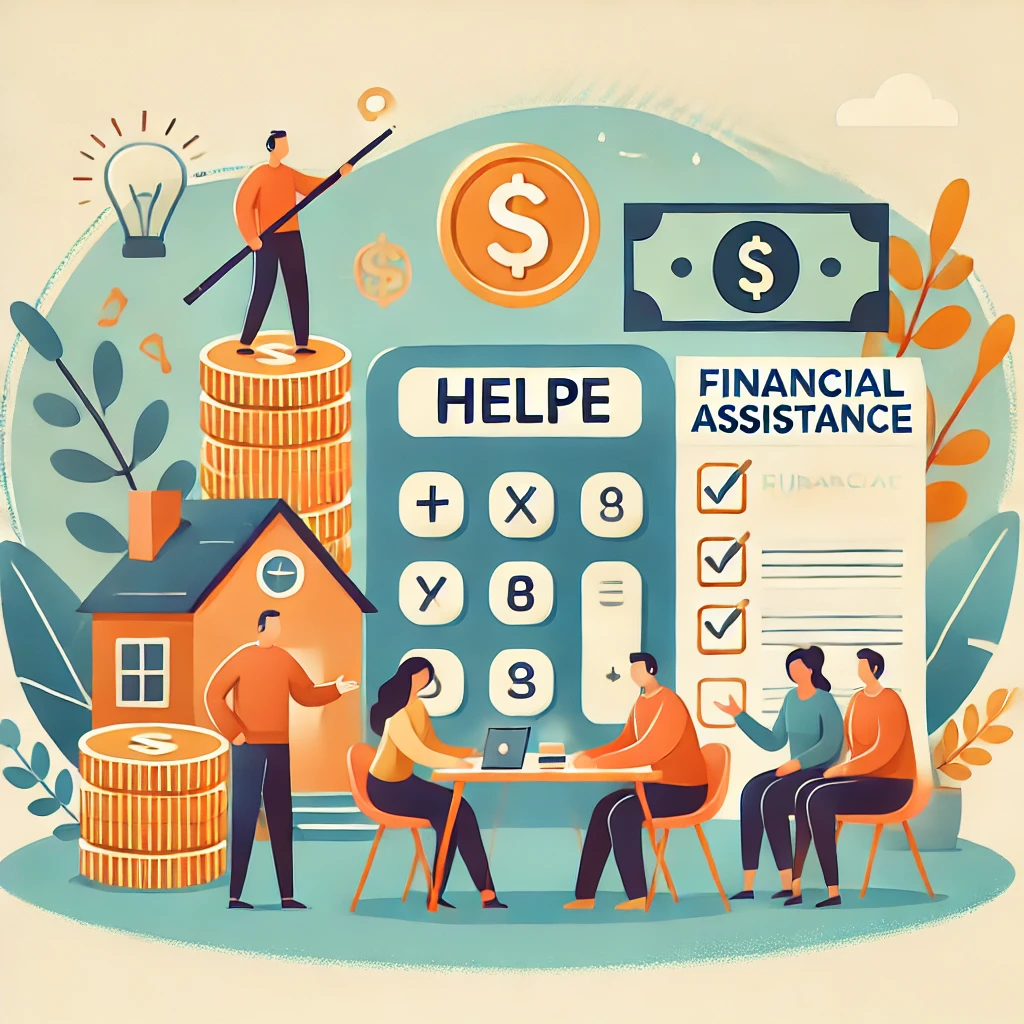Business
Understanding Financial Assistance: A Guide to Help Lower Costs

Ag teastáil domh sios fa na costai (which translates to “I need help with costs” in English) is a sentiment many people can relate to. Whether you’re dealing with unexpected expenses or simply looking for ways to lower everyday costs, understanding the options available for financial assistance is crucial. This SEO-optimized blog will provide an informative guide on different forms of cost assistance, including government programs, community resources, and budgeting strategies. Let’s explore how you can effectively lower your expenses and manage your finances better.
1. Types of Financial Assistance Available
There are several forms of financial assistance available to help individuals and families manage their costs. Depending on your situation, you may qualify for one or more types of support. Here are some common sources of financial assistance:
1.1 Government Assistance Programs
One of the most accessible sources of help with costs is through government assistance programs. Governments at the national, state, and local levels offer a variety of support programs designed to assist individuals and families in need. Some of these programs include:
- Unemployment Benefits: If you are currently unemployed, you may be eligible for unemployment benefits to help cover living expenses while you look for new work.
- Housing Assistance: Programs like Housing Choice Vouchers (Section 8) or subsidized housing provide assistance with rent, making it more affordable for low-income families.
- Food Assistance: Programs such as the Supplemental Nutrition Assistance Program (SNAP) help individuals and families buy groceries, ensuring they have enough to eat without straining their finances.
- Healthcare Assistance: Medicaid and other healthcare assistance programs are available to help cover the costs of medical care, especially for low-income individuals and families.
1.2 Nonprofit and Community-Based Resources
Local nonprofit organizations and community-based resources can also provide much-needed help with costs. Many charities and community groups offer services such as:
- Food Banks: Local food banks offer free groceries to those in need, helping to reduce the cost of food.
- Utility Assistance: Some nonprofits provide utility assistance, helping families pay their electricity, water, and heating bills during times of financial hardship.
- Clothing and Household Items: Organizations like Goodwill and The Salvation Army offer affordable clothing and household items, as well as vouchers for families in need.
1.3 Emergency Financial Assistance
For those facing sudden, unexpected costs, emergency financial assistance programs can be a lifesaver. This type of assistance is often offered by local governments or charities and is intended to help cover urgent expenses, such as rent or utility bills, when you are unable to meet them due to an emergency.
2. Budgeting Strategies to Lower Costs
While financial assistance programs are helpful, learning how to budget effectively can also be a great way to lower costs and manage your finances better. Here are some strategies that can help you reduce expenses:
2.1 Track Your Spending
The first step to lowering your costs is to track your spending. Write down all your expenses for a month to understand where your money is going. This will help you identify areas where you may be overspending and find opportunities to cut back.
2.2 Create a Monthly Budget
Creating a monthly budget is an essential part of managing your finances. List your income and expenses, then set a spending limit for each category. Be sure to allocate funds for savings and emergency expenses. Sticking to a budget will help you ensure that you live within your means and avoid unnecessary debt.
2.3 Prioritize Essential Expenses
When working to lower costs, it’s important to prioritize essential expenses like housing, utilities, food, and healthcare. Make sure these are covered before allocating money to non-essential categories, such as entertainment or dining out.
2.4 Cut Unnecessary Costs
Look for ways to cut unnecessary costs in your budget. This could include canceling unused subscriptions, reducing the number of times you eat out, or finding ways to save on groceries, such as using coupons or buying in bulk. Small changes can add up to significant savings over time.
3. Negotiating Costs and Bills
Many people are unaware that they can often negotiate costs and bills to reduce their expenses. Here are some practical ways to lower your bills:
3.1 Negotiate Rent
If you are renting, it may be worth trying to negotiate your rent with your landlord. Some landlords may be open to lowering rent, especially if you have been a good tenant for an extended period. Additionally, if there are vacancies in your building, your landlord may be more inclined to lower rent to keep you as a tenant.
3.2 Lower Utility Bills
You can also take steps to lower your utility bills by conserving energy and negotiating with your utility provider. Many utility companies offer payment plans or discounts for low-income households, so it’s worth contacting your provider to see if you qualify for any savings.
3.3 Medical Bill Assistance
Medical bills can be a significant financial burden, but there are ways to negotiate these costs. Speak with your healthcare provider to see if they offer payment plans or if they are willing to lower the total cost. Many hospitals and clinics have financial assistance programs available to help those who cannot afford to pay their bills in full.
4. Finding Employment and Increasing Income
Another way to alleviate financial stress is to increase your income. Finding stable employment or additional sources of income can help you manage your expenses better and reduce the need for financial assistance.
4.1 Job Training and Skill Development
Consider investing in job training or skill development programs that can help you find higher-paying work. Many local community centers and nonprofit organizations offer free or low-cost training programs in various fields, making it easier for you to qualify for better job opportunities.
4.2 Freelance and Part-Time Work
If you have skills that are in demand, consider taking on freelance or part-time work to supplement your income. Websites like Upwork, Fiverr, and Freelancer offer opportunities for people with various skill sets to earn extra money, which can help you cover additional expenses.
5. Conclusion
If you find yourself saying, “ag teastáil domh sios fa na costai” or “I need help with costs,” know that there are numerous financial assistance programs, budgeting strategies, and opportunities to negotiate costs that can help you manage your expenses. From government support and community resources to practical budgeting tips and job opportunities, there are many ways to alleviate financial stress and work towards greater financial stability.
It’s important to remember that everyone faces financial challenges at some point in their life, and asking for help is a responsible and proactive step. By exploring the available options and implementing the strategies discussed in this blog, you can make meaningful progress in managing your costs and achieving financial security.
Key Takeaway: Whether through government assistance, budgeting strategies, or community resources, there are many ways to get help with costs and manage your finances effectively. By taking advantage of available support and making smart financial choices, you can work towards greater stability and peace of mind.
